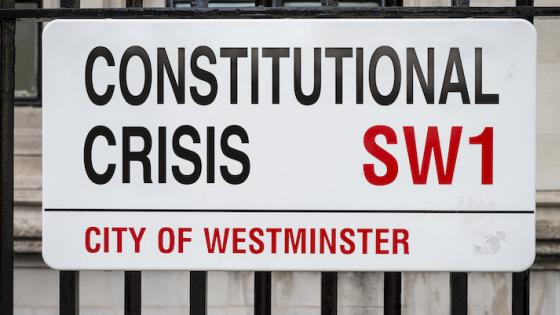
Brexit and legal traditions
Thorsten Beck advises analysts who claim that the UK Supreme Court's decision that the prorogation of Parliament was unlawfaul represents a constitutional coup should read up on British constitutional history.
Search the site

Thorsten Beck advises analysts who claim that the UK Supreme Court's decision that the prorogation of Parliament was unlawfaul represents a constitutional coup should read up on British constitutional history.
First posted on:
Finance: Research, Policy and Anecdotes, 25 September 2019
I am trying to avoid writing about Brexit, but somehow cannot help myself. But I promise a rather unique approach today – that of an economist with interest in comparative legal studies. In the early part of my research career I co-authored several papers in the law and finance literature (together with Asli Demirguc-Kunt and Ross Levine), a literature that shows a critical difference in (i) how legal systems have developed over the centuries across different legal ‘families’, and (ii) how this legal system development has influenced the development of the financial system. A headline finding is that Common Law countries (US, UK and former British colonies) have more developed financial systems than Civil Law countries (pretty much everyone else) controlling for other factors. The critical historical difference between Common and Civil Law lies in the role of the judiciary and the flexibility and adaptability of the legal system. One critical difference in the historic development of the UK and France (two mother countries of their respective legal tradition) was the role of the judiciary in the British and French revolutions in the 17th and 18th centuries, respectively. In short, the judiciary was on the winning side in the conflict between Parliament and King in the UK and on the losing side in the conflict between the Ancien Régime and revolutionaries in France. Siding with parliament over the king (under the motive Lex Rex) helped establish the independence and ultimately supremacy of the judiciary in the UK (unlike in France and other French Civil Code countries where the judiciary has a much weaker role among the different branches of government). Another critical difference is the role of jurisprudence (past decisions) and willingness and ability of Common Law judges to adapt legal decisions to circumstances, including looking beyond form to intention.
Given this historic background, the UK Supreme Court decision that the prorogation of Parliament was unlawful should not be surprising. The justification of the decision looks beyond form (proroguing parliament to prepare a Queen’s speech) to intention (avoiding accountability of government) and consequence (opening the door to arbitrary prorogation whenever government pleases). It also confirms the strong role that the judiciary has in the political system of Common Law countries. Finally, it establishes once more Lex Rex – as the Stuart Kings lost in the 17th century, so do Tories claiming to represent the “will of the people” in the 21st century. Those analysts who claim a constitutional coup better read up on British constitutional history.
2 Reads